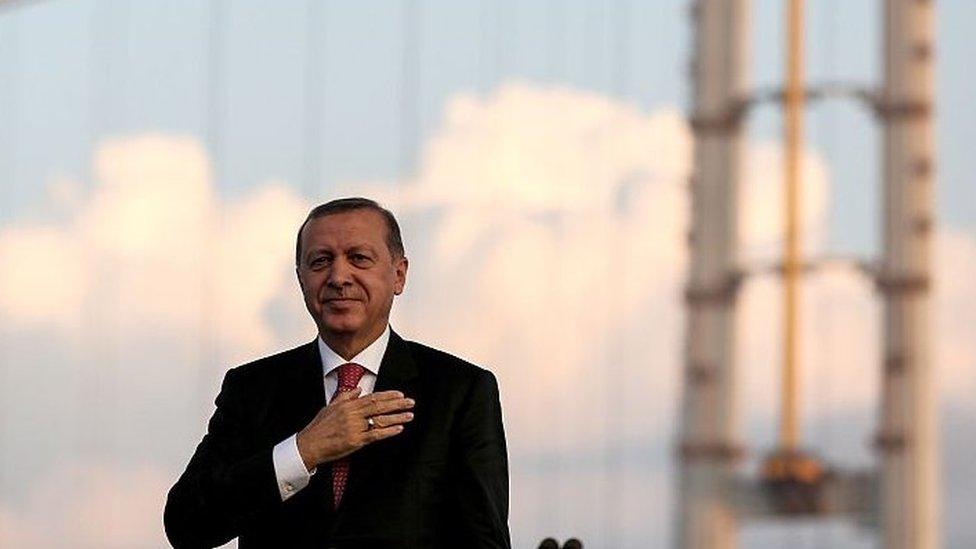Turkish local elections: Opposition stuns Erdogan with historic victory
- Published
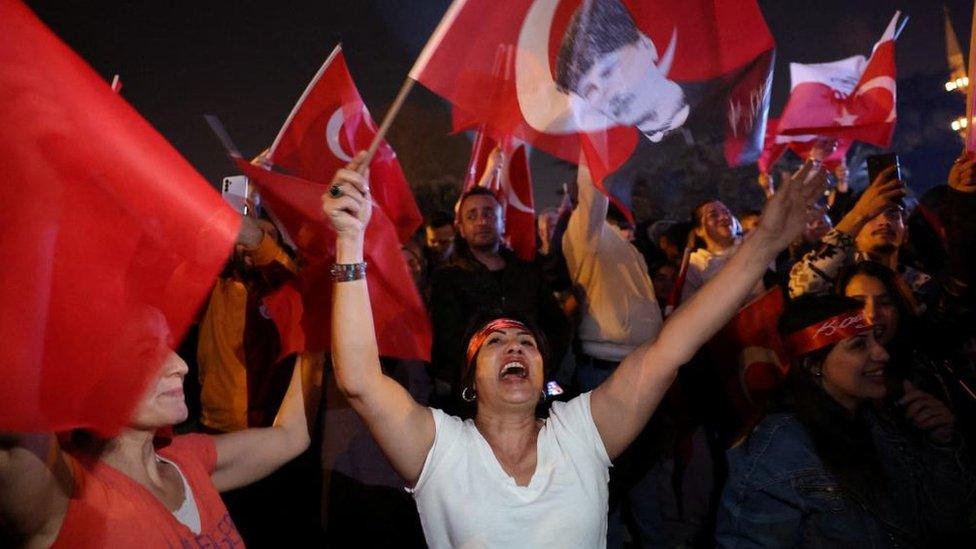
Opposition supporters celebrated in Istanbul and other cities as the scale of victory became clear
Turkey's main opposition party has claimed big election victories in the main cities of Istanbul and Ankara.
The results are a significant blow for Recep Tayyip Erdogan, who had hoped to regain control of the cities less than a year after he claimed a third term as president.
He led the campaign to win in Istanbul, where he grew up and became mayor.
But Ekrem Imamoglu, who first won the city in 2019, scored a second victory for the secular opposition CHP.
Mr Erdogan had vowed a new era in Turkey's megacity of almost 16 million people, but the incumbent mayor of Istanbul secured more than 50% of the vote, defeating the president's AK Party candidate by more than 11 points and almost one million votes.
This was also the first time since Mr Erdogan came to power 21 years ago that his party was defeated across the country at the ballot box.
In the capital Ankara, opposition mayor Mansur Yavas was so far ahead of his rival on 60% that he declared victory when fewer than half the votes were in. Supporters blocked all the main roads in the city, waving flags and sounding their car horns.
The CHP - the Republican People's Party - won again in Izmir, Adana and the resort of Antalya. Significantly it also gained control of Turkey's fourth-biggest city Bursa and Balikesir in the north-west, as well as Adiyaman, which hit hard by last year's double earthquake in the south-east.
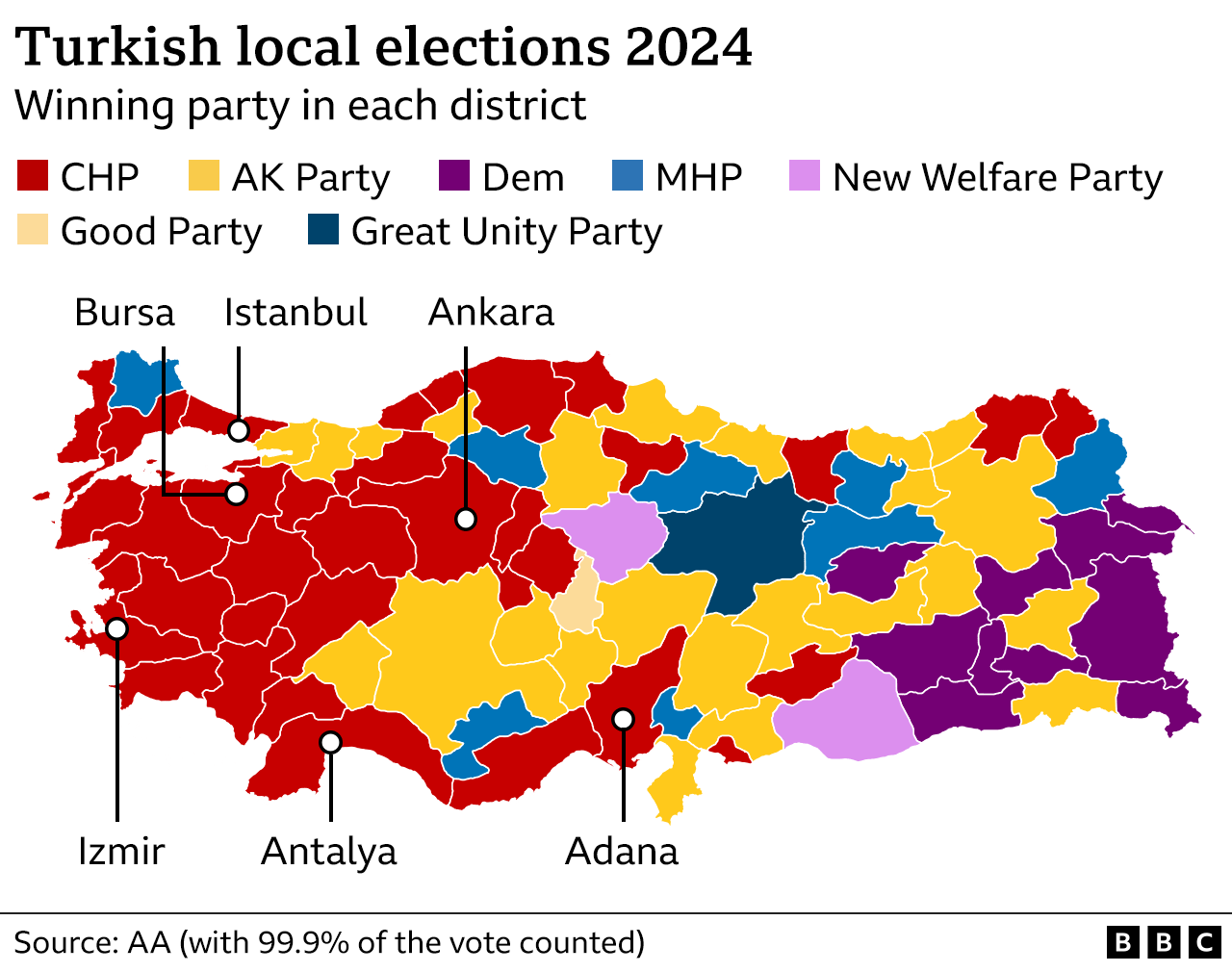
President Erdogan, 70, acknowledged the election had not gone as he had hoped, but he told supporters in Ankara it would mark "not an end for us but rather a turning point".
He has always relied on the "people's will" for his authority and he told supporters he would respect the electorate now too.
Under Recep Tayyip Erdogan, Turkey's presidency has amassed sweeping powers, replacing the prime minister. But in the cities, directly elected mayors still have considerable influence.
During the election campaign, Mr Erdogan said this would be his last, because his presidential term ends in 2028.
But critics believed that victory would have encouraged him to revise the constitution so he could stand again. After such a dramatic defeat that is looking very unlikely.
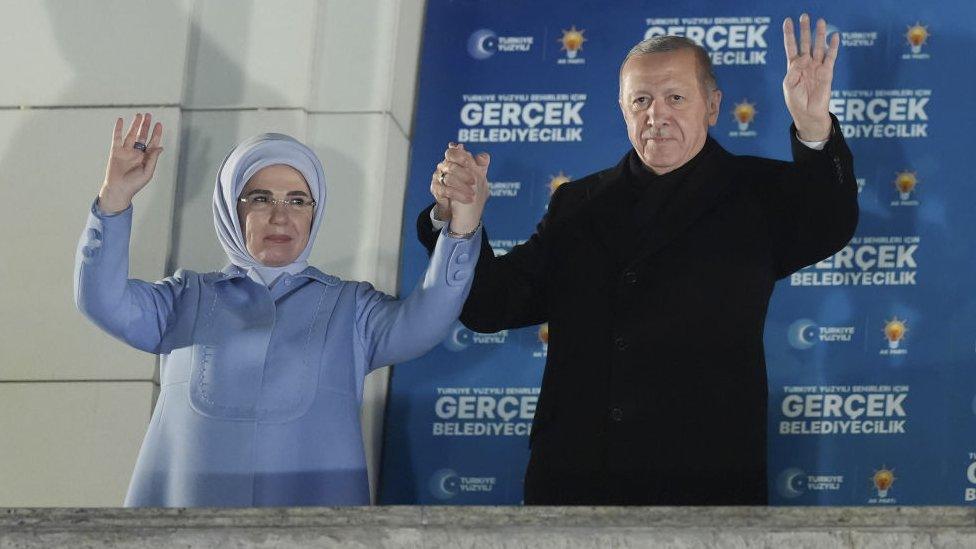
President Erdogan promised supporters his party would learn its lessons from the defeat
Political scientist Berk Esen said the opposition CHP had delivered the "biggest election defeat of Erdogan's career" and come up with its best results since 1977.
The outcome was a big success for the chairman of the CHP, Ozgur Ozel, who praised voters for deciding to change the face of Turkey in a historic vote: "They want to open the door to a new political climate in our country."
Crowds in Istanbul gathered outside the town hall in Sarachane, one of Istanbul's oldest districts.
They waved Turkish flags and banners showing Ekrem Imamoglu's picture alongside Turkey's founding father Kemal Ataturk, whose poster was draped down the walls of the local authority building.
"I can say that our citizens' trust and faith in us has been rewarded," said Mr Imamoglu.
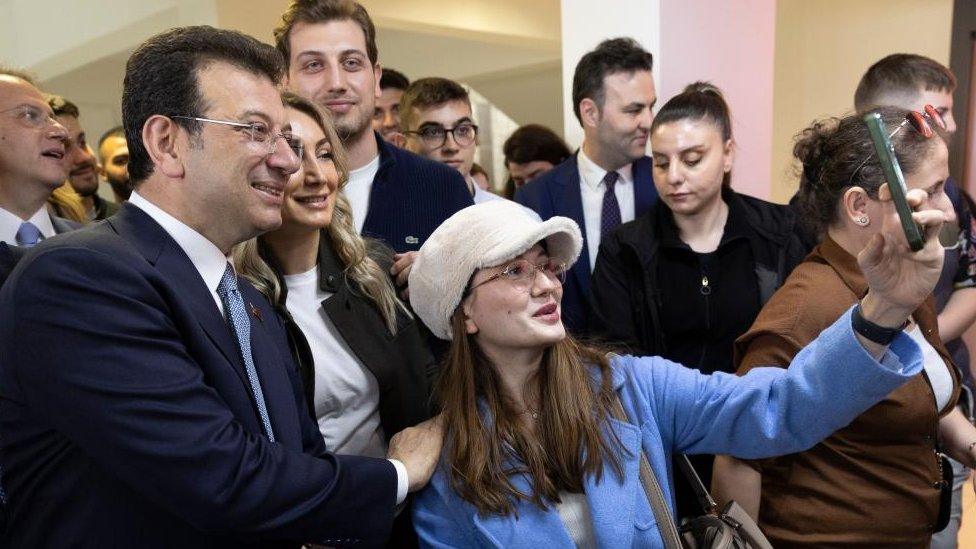
Ekrem Imamoglu won Istanbul for the opposition in 2019
Both he and Mansur Yavas are seen as potential candidates to run for the presidency in 2028.
"Everything will be fine," Imamoglu supporters chanted as they danced to drums and clarinets in Sarachane, one of Istanbul's oldest districts.
Istanbul's incumbent mayor had first used the slogan when he won the city from Mr Erdogan's party five years ago. Some of the banners in Sarachane used his current slogan, "Full speed ahead".
"They're only local elections but the opposition's victory in big cities is a significant show of force against the ruling party," Imamoglu supporter Yesim Albayrak, 25, told the BBC.
I am now hoping the country will become a more secular country, respecting human rights, women's rights and childrens rights

Mehmet Bankaci, 27, told the BBC there was a need for change in Turkey: "If Imamoglu or Mansur Yavas had been the CHP candidate in last year's presidential election, they definitely would have won."
Istanbul hosts a fifth of Turkey's population of nearly 85 million people. Control the city and you control a significant portion of Turkey's economy including trade, tourism and finance.
Five years ago, Mr Imamoglu overturned years of AK Party rule in Istanbul with the backing of other opposition parties. But that opposition unity fell apart in the wake of last year's presidential election defeat and the AK Party had high hopes of overturning his 2019 victory.
Ahead of Sunday's election, the vote had been seen as too close to call, with a strong challenge from AK Party candidate Murat Kurum.
But the ruling party has been unable to shake off an economic crisis that has seen inflation rates of 67% and interest rates at 50%.
While broad swathes of the west, south and north of Turkey are now under the control of the opposition CHP, the pro-Kurdish Dem party has won control of much of the south-east.
Mr Erdogan's AK Party continues to dominate central Turkey and had more success in areas of the south-east devastated by the February 2023 double earthquake, including the cities of Kahramanmaras and Gaziantep, although it did lose control of Adiyaman.
Speaking from the balcony of his party headquarters in Ankara, he promised to use the four years before the next presidential election to "renew ourselves and compensate for our mistakes".
His supporters chanted back: "Stand still, this nation is with you."
About 61 million Turks were eligible to take part in Sunday's election and more than a million young voters were casting their ballots for the first time. Turnout was estimated at more than 77% across the country's 81 provinces.
Related topics
- Published31 March 2024
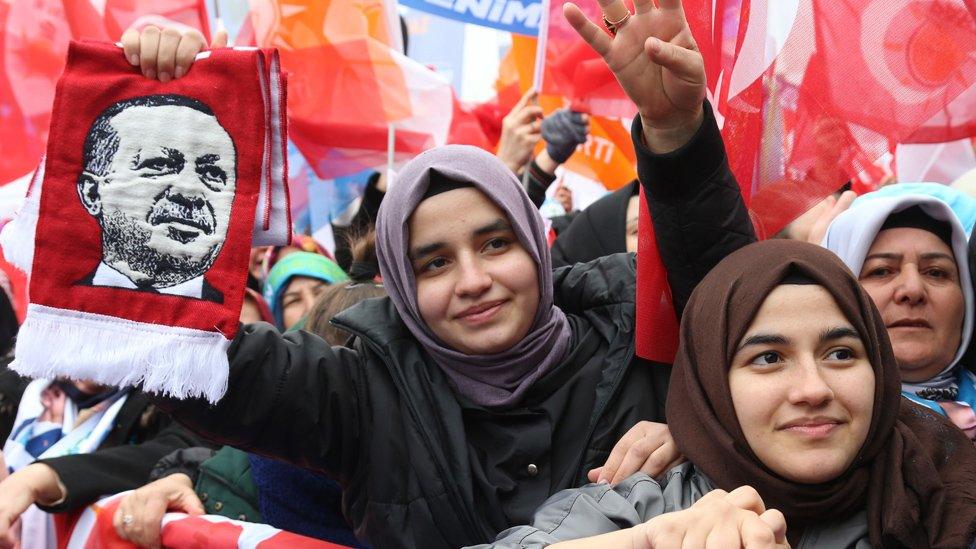
- Published24 March
